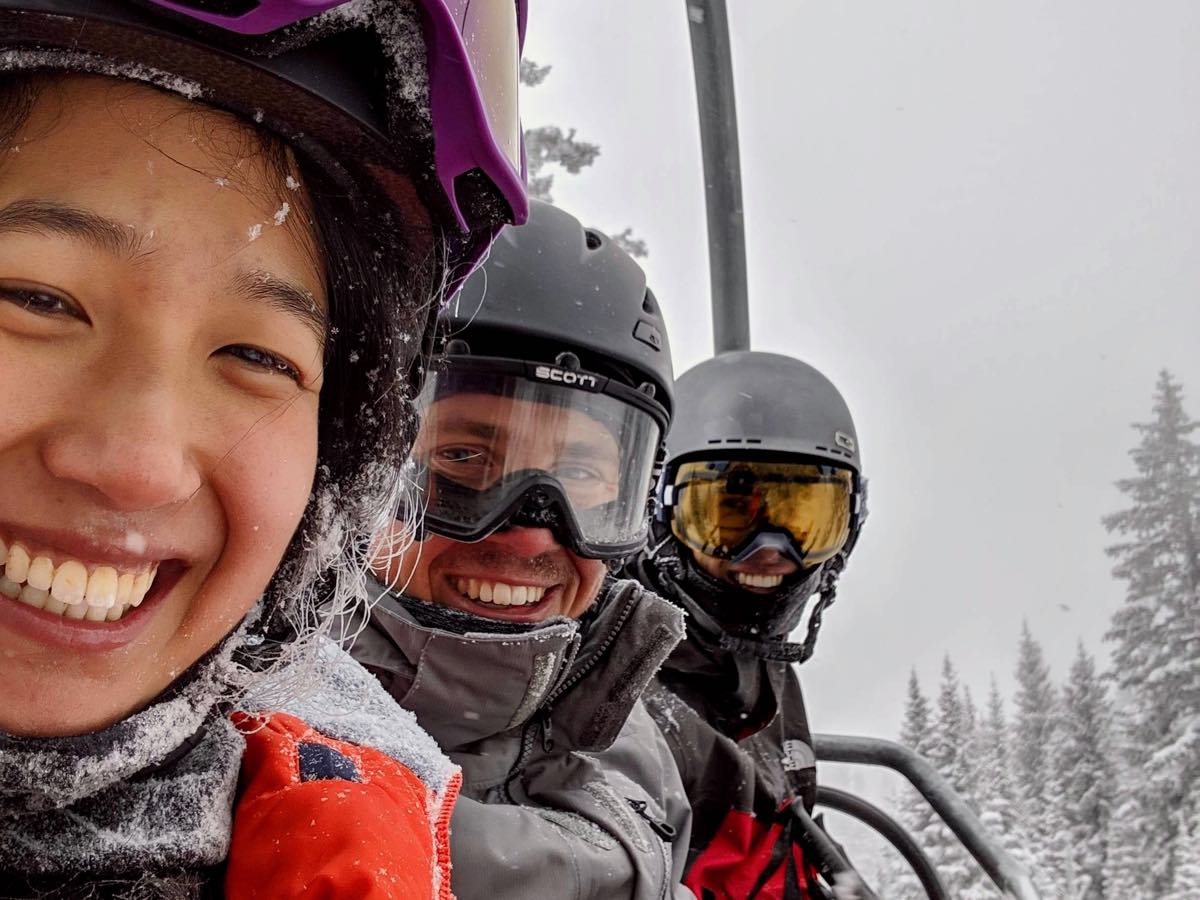Just before Christmas last year, I took a trip to Steamboat Springs, Colorado to go snowboarding. I hadn’t ridden in years, but fortunately it’s like riding a bike, and it didn’t take long for my mind and body to remember what to do. The first few hours of riding were really enjoyable as fresh powder made for fun runs on soft, forgiving terrain. Once the snow stopped falling and the slopes got a bit more packed down, the riding conditions became less forgiving. When this happens the fear of catching an edge or sliding out on an icy patch becomes a lot more concerning, making it all too tempting to put on the brakes. In short, it makes it very easy to hold back.
Around midday we took the lift up the mountain and came across a ski instructor with a group of youngsters in tow. “No pizza! No wedgies! Have some nerve, kids!” This is what we heard him yell as he ushered them down the slopes. In the moment it sounded really funny, but his advice was spot on. Skiing and snowboarding are not sports of caution. Actually, that’s not entirely true. There is some level of caution that should be exercised to keep oneself safe while riding. That being said, the caution-safety relationship is not linear.
This is a scientific way of saying that more caution does not necessarily yield more safety. Instead, there is a caution sweet spot that yields the maximum level of safety. Any amount of caution above or below that sweet spot would actually lead to less safety. I’ll admit, this can sound strange. How can being more cautious lead to being less safe? But if you’ve done a bit of snowboarding it should make a lot of sense.
Snowboarding is a sport of dynamic stability. What this means is that your stability (and therefore safety) is a byproduct of your movement. Biking is the same way. If your bicycle isn’t moving, it is very difficult to balance on just two wheels. However, once the bike picks up speed, it becomes much easier to balance. The same is true for snowboarding. Although it can feel scary at first, committing to the motion is imperative for safe and effective travel.
Without enough speed, the ride tends to feel very unstable. Losing one’s balance feels more threatening, turns feel awkward, and edges find ways to get caught. The cautious rider will likely bumble their way down the hill in a series of skids, awkward turns, caught edges, and falls. Meanwhile, the one with the nerve to commit and lean into the ride will likely reach the bottom with fewer mishaps and a lot more grace.
All of these rules are also true with steep downhill running. Have you ever tried to brake your way down a steep descent? It’s jarring and uncomfortable. Very similar to snowboarding, throwing on the brakes results in the risk of skidding out. Meanwhile, a bolder runner finds their way down in a smoother, faster, and potentially safer fashion.
This is but the tip of the iceberg. Any seasoned participant of the aforementioned activities and many others should find these thoughts quite common. And to say that the abandonment of pizzas and wedgies and the embrace of nerve applies to real life also seems a bit too obvious. I think we can go deeper.
Do many of us live a lesser life because we lack the guts to go for it? I think this simplifies it too much. In my mind timidity is just one piece of the puzzle. So, what are the true obstacles that stand in our way, the things that undermine our nerve and send us into a skid? Though the answers can be complex and different for each person, I think we share some common themes. Shame, regret, envy, and grudges are all things that cut our legs from beneath us. They make us lesser versions of ourselves.
A lack of nerve is mostly a personal issue that exists independent of other people. Meanwhile, some of these other things involve more than just ourselves. The issues aren’t singular, and that which is plural can be more complicated. These issues call us to confront things with other people, reconcile, and admit our own wrongdoings. They call us to forgive the wrongdoings of others, to be gracious, and to grant that which we feel is undeserved. And you know what? This is hard, really hard.
And yet, as hard as it is, not doing so is harder. Avoiding it leaves us slowly wedging our way through life. It robs us of a smooth descent or a gloriously carved turn. It leaves us awkwardly bouncing off each mogul. And so we must employ the words of Marge Piercy in her book Circles on the Water:
But remember to bury
all old quarrels
behind the garage for compost.
Forgive who insulted you.
Forgive yourself for being wrong.
You will do it again
for nothing living
resembles a straight line,
certainly not this journey
to and fro, zigzagging
you there and me here
making our own road onward
as the snail does.
No pizza. No wedgies. Bury the quarrels. Zigzag like the snail. Have some nerve, kids.
Call for Comments (from Meghan)
- Are there other examples from life and sport where at least some movement breeds more stability and therefore more safety?
- Where in life do you feel yourself holding back in places where you should or could give a little ‘oomph?’

